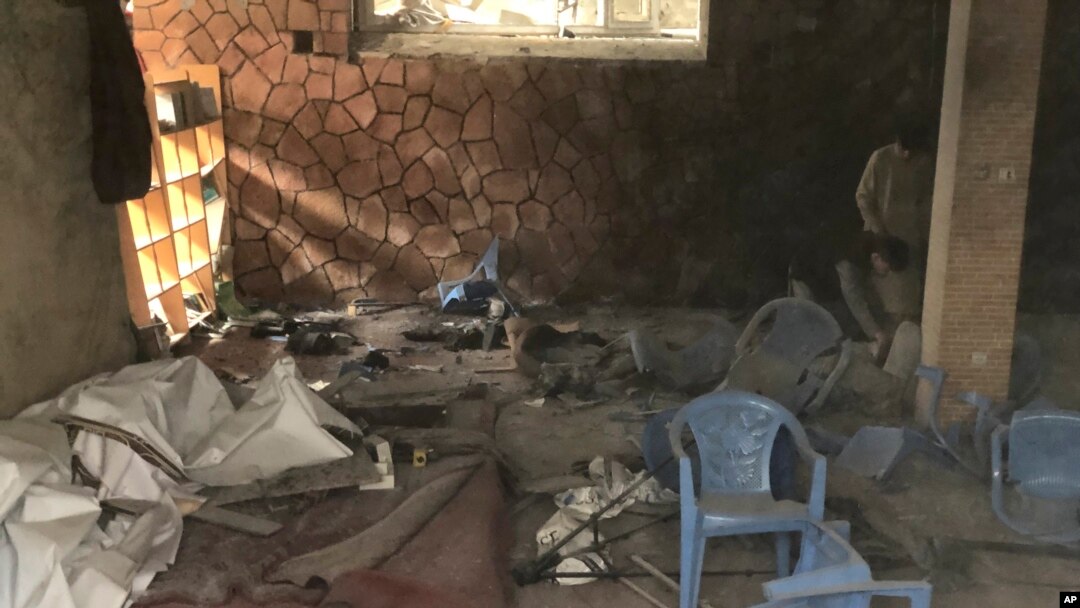A bomb blast tore through a Shiite cultural center in Afghanistan's northern Balkh province Saturday, killing a security guard and wounding at least eight people.
A local police spokesman, Mohammad Asif Waziri, told VOA the blast had targeted a ceremony honoring the Afghan media in the provincial capital, Mazar-i-Sharif. He said that five journalists and three children were among those injured.
Provincial officials and religious clerics were also among the guests at the event.
Abdul Nafi Takor, the Taliban-led Interior Affairs Ministry spokesman in the Afghan capital, Kabul, said a planted explosive device caused the blast.
"I heard a big bang ... then there was chaos as everyone was trying to find a way to escape," Afghan journalist Atif Arian, wounded in the blast, told Agence France-Presse.
"Some journalists are seriously wounded," Arian added.
A mainstream Afghan TV channel, TOLOnews, reported one of its journalists was among the victims.
The Committee to Protect Journalists (CPJ) demanded the Taliban quickly investigate the attack and bring the perpetrators to justice.
"Targeting journalists during an event to honor reporters is a despicable and cowardly act. Brave Afghan journalists are already reporting in extremely challenging circumstances.," said Beh Lih Yi, CPJ's Asia program coordinator.
The CPJ lists Afghanistan among the countries with the worst records of prosecuting murderers of journalists.
No one immediately claimed responsibility for Saturday's attack. It comes two days after a suicide bomber killed the Balkh governor, Mohammad Dawood Muzammil, at his office in Mazar-i-Sharif, along with two other people.
The Islamic State terror group's Afghan branch, known as Islamic State-Khorasan, or IS-K, took responsibility for Thursday's bombing and vowed to carry out more attacks against Taliban officials.
Muzammil is the second-most senior official killed since the Taliban regained control of Afghanistan in 2021 as the United States and NATO troops departed the country after two decades of war.
A car bombing in December killed the Taliban police chief of northeastern Badakhshan province in an attack claimed by IS-K.
The Balkh governor's assassination came a week after the Taliban announced the death of the IS-K intelligence and military chief in a counterterrorism raid in Kabul.
The Taliban takeover has almost ended years of war-related casualties in Afghanistan, but IS-K has stepped up its attacks in the country, posing the de facto authorities' most significant security challenge.
Muzammil had served as the governor of the eastern Nangarhar province and supervised operations against IS-K operatives there before moving to Balkh last year. IS-K launched its operations in Afghanistan in 2015 from bases in Nangarhar and has since expanded the violence to other provinces.


